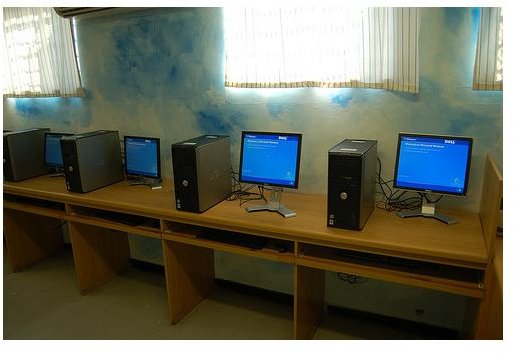Chat Etiquette for the Online Classroom
Chat Etiquette
Having good chat etiquette is very important in an online classroom or distance learning setting. Most of the time the online classroom is going to revolve around small group communication skills; however, being well versed in small group communication is not the only thing to take into account. When to say something, how to say it, and what not to say in this environment is also just as important for students and teachers alike.
Chat etiquette is defined as the way someone should behave or act while chatting on the Internet as well as how other people react online during a conversation. Being in a school environment and knowing “school” etiquette is an added bonus for the online classroom but still lacks the information needed to have high quality online chat netiquette. Learn the skills needed to have great online classroom chat etiquette.
The Online Classroom

The online classroom is a school setting and should be treated as such but there are also additional rules and regulations that students must know as well since the class is over the Internet. Speaking to and understanding other students and teachers online can be difficult since the normal forms of non-verbal communication as well as tone and inflection are not conveyed. Conversations are more likely to be misunderstood and comments taken the wrong way in an online setting. Furthermore, people are more likely to say what is on their minds over the Internet since the threat of face-to-face contact is removed from the situation.
“Honest disagreement is often a good sign of progress.” -Gandhi

Listening in the online environment is also of great importance. Understanding what the teacher or fellow students are trying to convey through their written words comes from knowing how to listen correctly. Listening is one thing that someone must do for good classroom chat etiquette. Knowing proper classroom chat etiquette will ensure the ease and comfort of the online learning environment.
Classroom Chat Etiquette
Listening is just the first step in proper classroom etiquette. Listening promotes understanding and prompts participation from others by your response. There are also other important reminders one should know when dealing with an online classroom.

-
Listening – Do not only listen but repeat back what you read to the other person. By repeating yourself you are letting the other person know that you understand and are listening to what they have to say.
-
Respond – A great deal of individuals respond to verbal communication with non-verbal communication such as a smile and a nod of the head or a scowl and crossing their arms in front of their chest. There are many variations of non-verbal communication that no one will ever see in the online classroom. When someone does not respond to a message it is seen as rude or like the person is being ignored. Make sure to always respond to every single message directed towards you in the online environment.
-
Calm – Since people have a tendency to say what is on their minds because of the small amount of repercussion over the Internet it is important to remember that getting upset right along side of them is only going to make the situation worse. We are not always going to like everyone and having that type of relationship online can be difficult to contain.
-
Spell words out – Online chatting is not the same as online classroom chatting. There are those people who use words li

ke lol, rofl, omw, ttyl, and ur just to name a few. These are shortened words for quick typing and chatting but are not proper for the online classroom so avoid them at all costs.
-
Say the person’s full name – There can be many John’s and Sally’s in the classroom and since there are no face to face conversations people will get confused on who you are talking to. In your response or statement to someone make sure to include the full name of the individual or individuals you are talking to.
-
Lower-case words and proper grammar – Typing in upper-case letters means you are yelling at someone in the online environment. Also, refrain from using !!!! or ????. These are seen as inappropriate ways to talk to another person and express negative impacts to the statement you are trying to convey. Use correct grammar because every statement you say to another student is reviewed by the teacher and bad grammar can have a negative influence.
-
No chat actions - *sleep* *smile* *thinking* *your action here.* These examples are actions that we are conveying through the written word. Avoid this type of chat in the online classroom. These chat actions should be reserved for personal chatting outside of the classroom setting only.
“Words are a form of action, capable of influencing change.” - Ingrid Bengis
